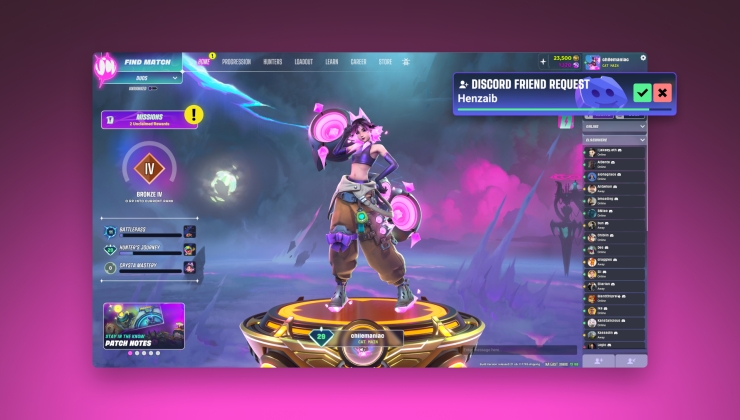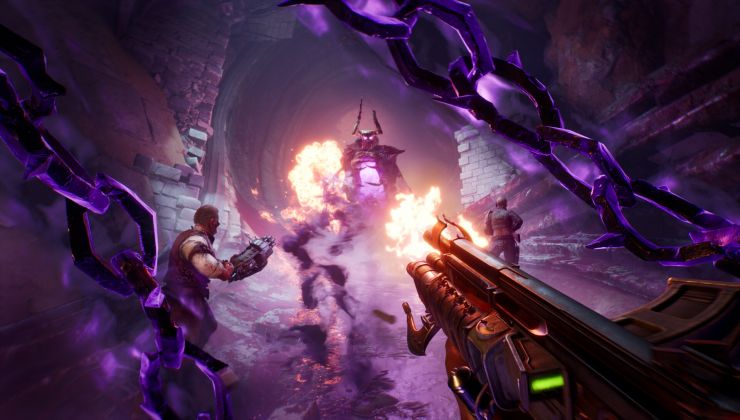PUBG is currently a game that doesn't work at all on Linux due to anti-cheat, even with the Steam Deck coming it's sounding like a game that won't play nicely. Oh, it's also going free to play.
In their development letter posted on December 10, they outlined what they've been doing and their future plans for anti-cheat with PUBG. While previously PUBG relied on BattlEye, which does have Linux support and recently made it easy for developers to turn on support for Proton and the Steam Deck, their newer proprietary solution with Zakynthos is going to get more invasive and cause more problems.
Through 2022, they explained that one of the major adjustments coming would be the "Implementation of kernel drivers" and I'm sure I don't need to explain to any regular Linux gaming fans why this will be a problem. These kernel drivers are designed for Windows, and something Wine / Proton likely will just not work with.
So what's the hope for PUBG running on Linux / Proton and the Steam Deck? It's not looking good.
A shame, as it's consistently in the top 5 most played games on Steam.
Wine and Proton are not kernel drivers. But what if you had to run a binary kernel module of unknown origin before you could do that. Would you still be willing?
Strange thing is, this might have happened when I used Windows, but I couldn't see me doing it under Linux.
Well, maybe this "I didn't know" is the difference already. Plus I didn't have to do it actively.
Last edited by Eike on 15 Dec 2021 at 9:31 am UTC
maybe those emulators require some processor instructions to work, and i dont have then...
i cant remember the games i was trying to run, can you test pokemon tcg online?
Aurora store tells me "app not supported". I guess that's because I run x86 Android. While it's true some apps won't be supported, most should be. I don't know whether that app would run on an x86 chromebook or windows...
ARM emulation should be possible with qemu at a performance cost though...
Edit: looks like it's possible, haven't attempted it though: https://www.reddit.com/r/linux_gaming/comments/rel2bf/guide_for_android_emulation_on_linux/
Last edited by MayeulC on 15 Dec 2021 at 12:35 pm UTC
Yup.While I understand the point of the concerns over intrusive anti-cheat solution, the problem stands. I would rather play one of the most popular video games in the world on Linux thanks to Proton than to use Windows. And so would many other Linux gamers.
Wine and Proton are not kernel drivers. But what if you had to run a binary kernel module of unknown origin before you could do that. Would you still be willing?
I would like to remind you that EVERY APPLICATION YOU RUN on your computer has potential to do anything malicious to you, either intentionally or through a backdoor or vulnerability.
You don't trust closed source software? There are open source projects with vulnerabilities discovered years after damage was silently done.
You don't run unknown low level or root applications? Through X server, every application you use can read 100% of your input and what is on your screen, without the need for root access.
And I am pretty sure you do not run 100% of your applications in containers either. You do not run Wireshark analysis of your network traffic 100% of the time. And since you use Linux, you probably do not have an antivirus either. No detection of any sorts of suspicious network activity or webcam, microphone being silently turned on.
Look, I am not saying that privacy-focused approach makes no sense. I am saying that it all boils down to some risk and at least a little trust.
I could play on Playstation if I really wanted to, but I do not want to use a controller. And my friends who have a Playstation or not the ones who are ever available.
*sigh* Maybe I need a cup of coffee.
Yup.While I understand the point of the concerns over intrusive anti-cheat solution, the problem stands. I would rather play one of the most popular video games in the world on Linux thanks to Proton than to use Windows. And so would many other Linux gamers.
Wine and Proton are not kernel drivers. But what if you had to run a binary kernel module of unknown origin before you could do that. Would you still be willing?
I personally wouldn't.
I would like to remind you that EVERY APPLICATION YOU RUN on your computer has potential to do anything malicious to you, either intentionally or through a backdoor or vulnerability.That's not the same as giving them the keys to your kingdom. How many people and developers would you trust with your root password?
You don't trust closed source software? There are open source projects with vulnerabilities discovered years after damage was silently done.I don't. That applies to closed source software as well. I especially don't trust gaming companies to maintain their games a few years after release.
You don't run unknown low level or root applications? Through X server, every application you use can read 100% of your input and what is on your screen, without the need for root access.
That's part of the reason we're phasing down X. I've personally been 100% on wayland for more than 3 years. `sudo` should be used sparingly too.
And I am pretty sure you do not run 100% of your applications in containers either.I do run all proprietary software either in a container (flatpaked steam) or as a dedicated system user.
You do not run Wireshark analysis of your network traffic 100% of the time. And since you use Linux, you probably do not have an antivirus either. No detection of any sorts of suspicious network activity or webcam, microphone being silently turned on.
Look, I am not saying that privacy-focused approach makes no sense. I am saying that it all boils down to some risk and at least a little trust.
Fine, I don't actively monitor these things. However some of my network use a pi-hole, and I'd investigate anything suspicious. Giving the rights to install a kernel module is not a little trust. It's giving complete, unsupervised, remote access to your system to some third party that is not audited by anyone, and giving your blessing to upload random files, screenshots and memory snapshots from your computer (by design) to some server that probably has lax security practices.
(...)
Congratulations! You get a "This User Is Actively Caring About Security And Privacy And Yet Nobody Cares" golden medal award!
(...)
Congratulations! You get a "This User Is Actively Caring About Security And Privacy And Yet Nobody Cares" golden medal award!
Please compare MayeulC's and your latest posts for constructiveness. I got a favourite.
You seriously shouldn't trust a kernel module for anti-cheat. The rootkits of old were universally criticised for good reason.
For average users, running games and all their stuff under their account and not sand boxed, I feel the difference between running closed source stuff as user or as root would be small though.
For some things, but not others. Installation of software, modification of boot processes, unrestricted access to protected memory areas, all things that are an order of magnitude worse.
It's not so much as being closed/open source as it is what the software is intended to do. Drivers from nvidia vs a rootkit designed to spy on the user and report back in a possibly insecure manner? World of difference.
Yeah, I'm aware, but what would the malicious software actually do with all its rights?
(Because, "It's not so much as being closed/open source as it is what the software is intended to do." ;) ) It can access all my data, my mails, my letters, my pictures, my financial data, my browser's data (including banking and stuff(*)) all fine with user rights, right? It can encrypt and or post them...
Putting itself into the boot sector is a different thing, ok, but then, I'm not reinstalling as often as every decade...
(*) not totally sure about this
Last edited by Eike on 20 Dec 2021 at 1:30 pm UTC






 How to set, change and reset your SteamOS / Steam Deck desktop sudo password
How to set, change and reset your SteamOS / Steam Deck desktop sudo password How to set up Decky Loader on Steam Deck / SteamOS for easy plugins
How to set up Decky Loader on Steam Deck / SteamOS for easy plugins
See more from me